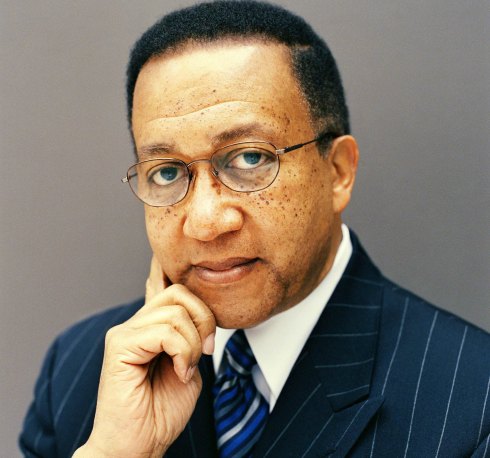
While social change for some may appear to be inevitable, it does not happen by osmosis, and it does not occur without a focused effort led by those who are not restrained by the fears of social transformation. An effective reform of the system of laws, courts, policies and institutions defined as the criminal justice system in the United States of America requires more than a principled public debate.
What is needed today with a renewed sense of urgency, beyond the all too frequent expressions of justifiable outrage and protest in response to videotaped incidents of police brutality, is a committed, bipartisan, well-resourced nationwide criminal justice reform movement. Black lives do matter. In fact all lives matter.
As President and CEO of the nation’s oldest and largest trade association of African American owned newspapers, the National Newspaper Publishers Association (NNPA), we reach over 20 million readers per week in aggregate circulation of 205 affiliated local and regional print and digital media companies. We hear the escalating cries of families and communities that have been devastated by the criminal justice system.
The issues of mass incarceration, overcriminalization, prosecutorial and police misconduct, equal justice, alternative sentencing, recidivism and judicial dysfunction are all serious problems that are having a severe negative impact, in particular, on the quality of life of African Americans. What is required today, however, is a multiracial coalition to ensure that a successful reform movement is representative of the interests of all Americans.
I know something about the movement-building process from my early days back in the 1960’s as a youth coordinator in my home state of North Carolina for the The Reverend Dr. Martin Luther King, Jr. and the Southern Christian Leadership Conference (SCLC). Dr. King said it best when he affirmed, “An injustice anywhere is a threat to justice everywhere.”
Martin Luther King, Jr. was a master movement builder. I learned firsthand from the experience of witnessing how Dr. King fused together a diverse coalition of intergenerational leaders to effect change at the local, state and federal levels toward equal justice for all. 50 years later we need to rebuild and expand the movement for change with respect to criminal justice.
I also know profoundly what it is like to be unjustly sentenced and incarcerated in a prison system that dehumanizes both the imprisoned and those who attempt to be in charge of vastly deteriorating overcrowded penal institutions. As a member of the Wilmington Ten civil rights activists who were unjustly imprisoned for a combined sentenced of 282 years for standing up for the rights of equal education for African American students in Wilmington, NC in the 1970’s, I have experienced the systematic degradation and awful downward spiral of counterproductive institutional inhumanity.
Today there are literally millions of people who not only want to see changes in the criminal justice system, but also are willing to join and support the emergence of a national “Criminal Justice Reform Movement” (CJRM).
Why am I encouraged now more than ever before about the potential to build and sustain an effective CJRM? The answer will probably surprise some of my colleagues in the Civil Rights Movement. My columns for the NNPA have always been about speaking truth to power in the vain of Frederick Douglass and W.E.B. Dubois, two historic publishers and leaders who knew the power of the print word and of the spoken word. Yet today, we must also dare to speak the truth to ourselves.
We must participate in helping to build this important reform movement. We cannot afford to be silent or stand idle on the sidelines while others in earnest strive to make changes to a system that will ultimately determine the quality of life in our communities for generations to come.
Thus it is why without any hesitation that I am publicly stating my endorsement of the coalition building efforts of the American Civil Liberties Union (ACLU), National Association of Criminal Defense Lawyers (NACDL), Charles Koch Institute and Koch Industries, Coalition for Public Safety, Center for American Progress, Leadership Conference on Civil Rights, and other national and regional organizations that have committed to support various criminal justice reform efforts. I believe it is now a propitious time to work together to establish a national bipartisan reform movement.
I was very interested and encouraged to learn that Koch Industries has been involved in the issues of overcriminalization and criminal justice reform for years. Yet many of my colleagues in the Civil Rights Movement were relatively unaware of this fact. Reforming the criminal justice system is not a concern to be constrained to the left or to the right on the political spectrum.
The respect for the moral dignity and wellbeing of every person, without the filter of race, class, religion or any other discriminating factor, is a paramount principle that has to be maintained in a society that strives to strengthen the inclusiveness of its democracy. The current social and political polarization concerning criminal justice reform is not healthy for our nation.
What is healthy is the budding bipartisan reform movement that is now emerging. Now is the right time. Now is the right moment to raise our voices and join forces together to build and sustain the Criminal Justice Reform Movement.
Dr. Benjamin F. Chavis, Jr. is the President and CEO of the National Newspaper Publishers Association (NNPA) and can be reached for national advertisement sales and partnership proposals at: dr.bchavis@nnpa.org; and for lectures and other professional consultations at: https://drbenjaminfchavisjr.wix.com/drbfc
